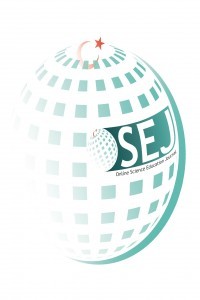ChatGPT - Science Education and Instruction Reshapes Management
ChatGPT - Science Education and Instruction Reshapes Management
Artificial intelligence is no longer just a fictional concept found in novels or portrayed in movies. Unlike in other aspects of life, its implementation in science education and instructional management has been progressing slowly and gradually. In recent times, particularly with the advent of chatbots such as ChatGPT, conversational robots have been developed and trained using vast amounts of textual data obtained from the internet. This has had a significant impact on our approach in educational science. Despite the benefits of this new technology, careful consideration is essential when it comes to its usage.
Keywords:
Artificial Intelligence, Science education, Teaching methods ChatGPT,
___
- Alam, A. (2021, November). Possibilities and apprehensions in the landscape of artificial intelligence in education. In 2021 International Conference on Computational Intelligence and Computing Applications (ICCICA) (pp. 1-8). IEEE.
- Arslan, K. (2020). Eğitimde yapay zekâ ve uygulamaları. Batı Anadolu Eğitim Bilimleri Dergisi, 11(1), 71-88. Celik, I. (2023). Towards Intelligent-TPACK: An empirical study on teachers’ professional knowledge to ethically integrate artificial intelligence (AI)-based tools into education. Computers in Human Behavior, 138, 107468.
- Chiu, T. K., Moorhouse, B. L., Chai, C. S., & Ismailov, M. (2023). Teacher support and student motivation to learn with Artificial Intelligence (AI) based chatbot. Interactive Learning Environments, 1-17.
- Cooper, G. (2023). Examining science education in ChatGPT: An exploratory study of generative artificial intelligence. Journal of Science Education and Technology, 32, 444-452.
- Goralski, M. A., & Tan, T. K. (2020). Artificial intelligence and sustainable development. The International Journal of Management Education, 18(1), 100330.
- Huang, A. Y., Lu, O. H., & Yang, S. J. (2023). Effects of artificial Intelligence–Enabled personalized recommendations on learners’ learning engagement, motivation, and outcomes in a flipped classroom. Computers & Education, 194, 104684.
- Kasneci, E., Seßler, K., Küchemann, S., Bannert, M., Dementieva, D., Fischer, F., ... & Kasneci, G. (2023). ChatGPT for good? On opportunities and challenges of large language models for education. Learning and Individual Differences, 103, 102274.
- Khan, R. A., Jawaid, M., Khan, A. R., & Sajjad, M. (2023). ChatGPT-Reshaping medical education and clinical management. Pakistan Journal of Medical Sciences, 39(2), 605.
- Kim, K., & Kwon, K. (2023). Exploring the AI competencies of elementary school teachers in South Korea. Computers and Education: Artificial Intelligence, 4, 100137.
- Kohnke, L., Moorhouse, B. L., & Zou, D. (2023). ChatGPT for Language Teaching and Learning. RELC Journal, 00336882231162868.
- Kung, T. H., Cheatham, M., Medenilla, A., Sillos, C., De Leon, L., Elepaño, C., ... & Tseng, V. (2023). Performance of ChatGPT on USMLE: Potential for AI-assisted medical education using large language models. PLoS digital health, 2(2), e0000198.
- Lee, H. (2023). The rise of ChatGPT: Exploring its potential in medical education. Anatomical Sciences Education.
- Metin, I., & Bahat, İ. (2021). Teknoloji bağlamında eğitimde fırsat eşitsizliği: eğitime erişime yönelik sorunlar ve çözüm önerileri. Ahi Evran Üniversitesi Sosyal Bilimler Enstitüsü Dergisi, 7(2), 498-517.
- Masters, K. (2023). Ethical use of artificial intelligence in health professions education: AMEE Guide No. 158. Medical Teacher, 1-11.
- Mohammed, A., Ali, R., & Alharbi, A. (2021). The reality of using artificial intelligence techniques in teacher preparation programs in light of the opinions of faculty members: A Case Study in Saudi Qassim University. Multicultural Education, 7(1), 5-16.
- Moreno-Guerrero, A. J., López-Belmonte, J., Marín-Marín, J. A., & Soler-Costa, R. (2020). Scientific development of educational artificial intelligence in Web of Science. Future Internet, 12(8), 124.
- Rahman, M. M., & Watanobe, Y. (2023). Chatgpt for education and research: Opportunities, threats, and strategies. Applied Sciences, 13(9), 5783.
- Ray, P.P. ChatGPT. (2023). A comprehensive review of the background, applications, key challenges, bias, ethics, limitations, and future scope. Internet Things Cyber-Phys. Syst. 3, 121-154.
- Santos, R. P. D. (2023). Enhancing Chemistry Learning with ChatGPT and Bing Chat as Agents to Think With A Comparative Case Study. arXiv preprint arXiv:2305.11890.
- Seetharaman, R. (2023). Revolutionizing Medical Education: Can ChatGPT Boost Subjective Learning and Expression?. Journal of Medical Systems, 47(1), 1-4.
- Sijing, L., & Lan, W. (2018, August). Artificial intelligence education ethical problems and solutions. In 2018 13th International Conference on Computer Science & Education (ICCSE) (pp. 1-5). IEEE.
- Sucu İ, & Ataman E. (2020). Dijital evrenin yeni dünyası olarak yapay zeka ve her filmi üzerine bir çalışma. Yeni Medya Elektronik Dergisi, 4(1), 40-52.
- Tapalova, O., & Zhiyenbayeva, N. (2022). Artificial Intelligence in Education: AIEd for Personalised Learning Pathways. Electronic Journal of e-Learning, 20(5), 639-653.
- Van der Vorst, T., & Jelicic, N. (2019). Artificial Intelligence in Education: Can AI bring the full potential of personalized learning to education?
- Yayın Aralığı: Yılda 2 Sayı
- Başlangıç: 2016
- Yayıncı: Mehmet ALTAN KURNAZ
